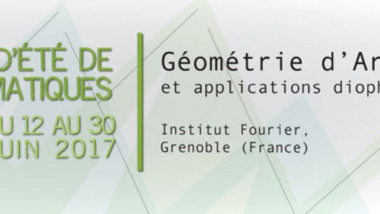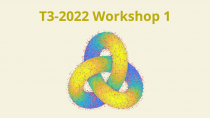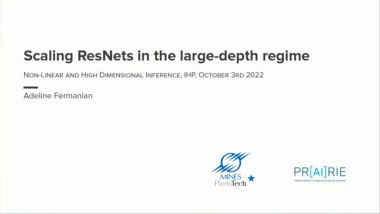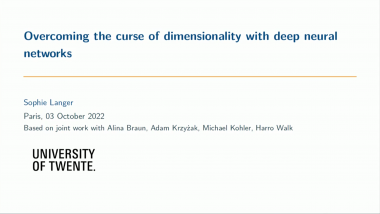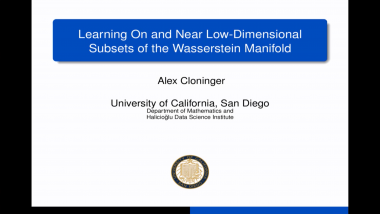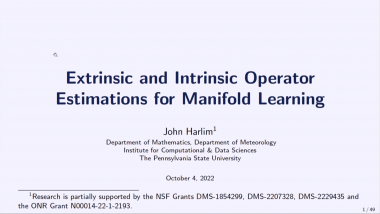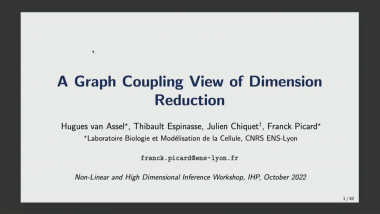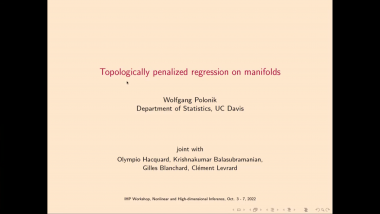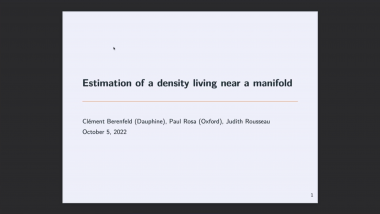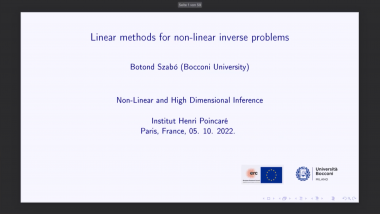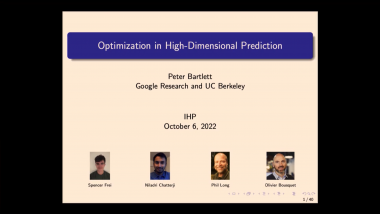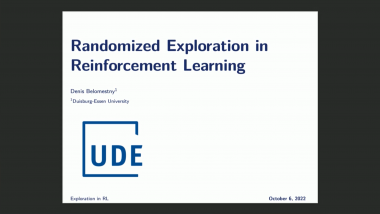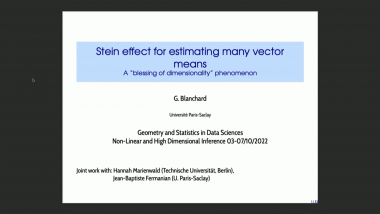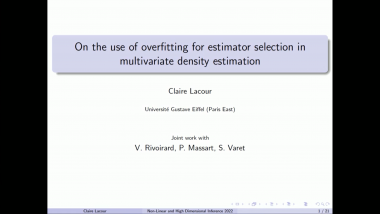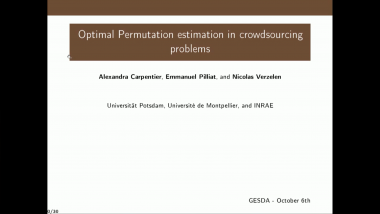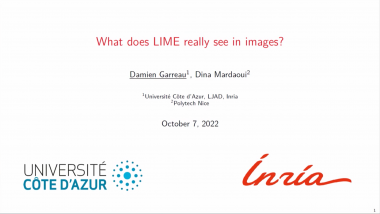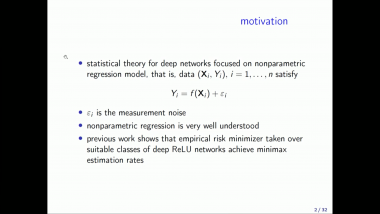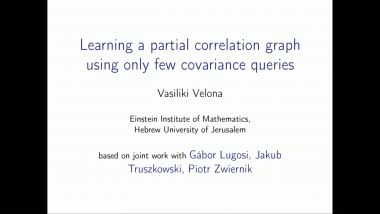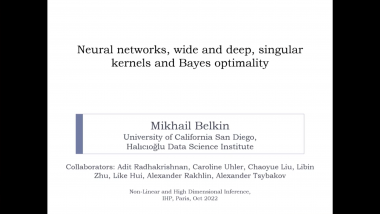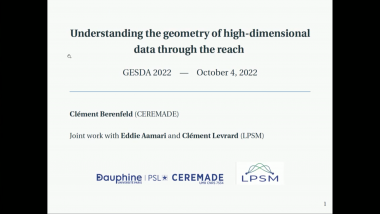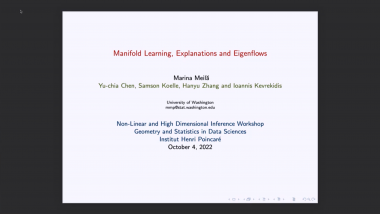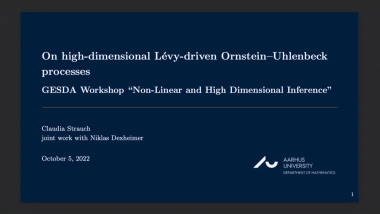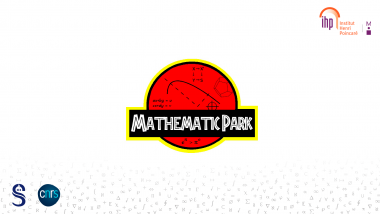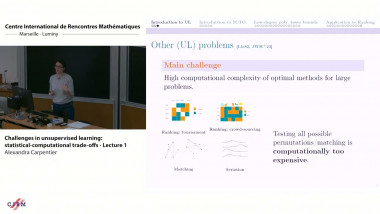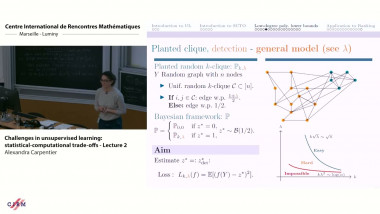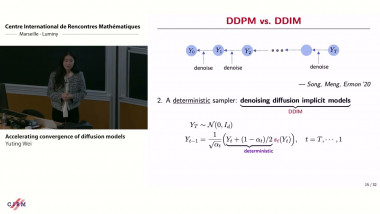Linear methods for non-linear inverse problems
De Botond Szabo
We consider recovering an unknown function $f$ from a noisy observation of the solution $u_f$ to a partial differential equation of the type $\mathcal{L} u_f=c(f,u_f)$ for a differential operator $\mathcal{L}$, and invertible function $c$, i.e. $f=e(\mathcal{L}u_f)$. Examples include amongst others the time-independent Schrödinger equation $\frac{1}{2}\Delta u_f = u_ff$ and the heat equation with absorption term $\frac{d u_f}{dt}-\frac{1}{2}\Delta u_f=f$. We transform this problem into the linear inverse problem of recovering $\mathcal{L}u_f$ under Dirichlet boundary condition, and show that Bayesian methods (with priors placed either on $u_f$ or $\mathcal{L}u_f$) for this problem may yield optimal recovery rates not only for $u_f$, but also for $f$. We also derive frequentist coverage guarantees for the corresponding Bayesian credible sets. Adaptive priors are shown to yield adaptive contraction rates for $f$, thus eliminating the need to know the smoothness of this function. The results are illustrated by several numerical simulations.
